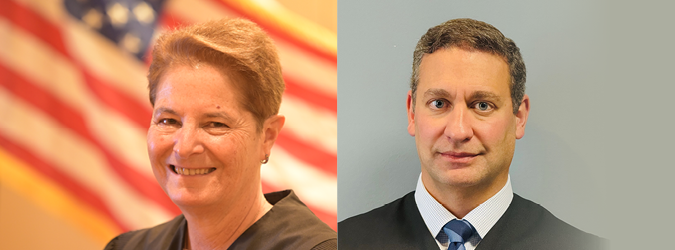Fulton v. City of Philadelphia: What It Really Means
7.9.2021
The U.S. Supreme Court’s unanimous June 17th ruling in Fulton v. City of Philadelphia[1] found that the City of Philadelphia violated the First Amendment’s “free exercise” clause by refusing to place foster children through a religious foster care organization that excluded same-sex couples from becoming certified foster parents. While this seems like a major blow to the LGBTQ community, the Court’s ruling was quite narrow: it hung its hat on interpreting a specific contract provision giving deference to the commissioner of the city’s Department of Human Services and rejected the agency’s argument that it should discard the standards for analyzing “free exercise” claims as laid out in the 1990 Employment Division v. Smith[2] decision. The Court declined to otherwise broaden the ability of faith-based employers or other public actors to exempt themselves from LGBTQ anti-discrimination laws based upon claims of religious liberty.
The 1990 Smith decision effectively bars parties from claiming that laws violate their free exercise of religion so long as the law is otherwise “neutral” and “generally applicable.”[3] The Smith standard has raised growing objection from socially conservative groups, who have hung high hopes on SCOTUS’ expansion last year of the “ministerial exemption” barring secular courts from determining bias suits by church employees,[4] as well as dicta in Bostock v. Clayton County,[5] which signaled the possibility of a case coming up in the near term that might give conservative justices the opportunity to broaden the application of First Amendment religious liberty protection to further relieve adherence to anti-discrimination laws. The Court made clear that Fulton was not that opportunity, however, despite its ruling against the City under the narrow language of the municipal ordinance in question.
The Court based the Fulton ruling on its finding that Philadelphia’s anti-discrimination ordinance failed the test of “general applicability” because it left room for case-by-case exceptions by city officials. Under Smith, therefore, a “strict scrutiny” standard had to apply to the City’s refusal to contract with the religious agency for the provision of foster care services unless it agreed to certify same-sex couples as foster parents. Justice Roberts, writing the majority opinion, noted that the City’s actions failed to survive that strict scrutiny and, therefore, found they violated the First Amendment, with no need to discard or modify Smith.
However, as Justice Samuel Alito’s concurrence notes, many laws may be interpreted as failing a test of “general applicability,” and such analysis is complex and fact-specific. Civil rights advocates argue that municipal, state and federal laws cannot be drafted to encompass all possible real-life applications. Many statutes assign exemptive powers to government agencies with varying levels of discretion to promulgate regulations and take interpretive or no-action positions in furtherance of applying statutory intent on a case-by-case basis. Anti-discrimination laws are, by their nature, exceptionally fact-specific, often assessing such nebulous factors as intent, effect and non-economic damages. Fulton may therefore leave the door open to a string of Smith-based attacks upon such laws, and judging by the tone of their concurring opinions, if they cannot dispose of Smith entirely, conservative justices appear willing to hear them.
LGBTQ defenders can find some positives in the ruling, however, beyond its leaving Smith nominally intact. Justice Roberts appeared to restate and even underscore the shift toward equality-based public policy and values reflected in recent, more liberal jurisprudence. Despite ruling it defeated by narrow statutory language, he acknowledged the weight of the City’s interest in equal treatment of both children and parents in foster care policy, and quoted language from the Masterpiece Cakeshop decision stating “society has come to the recognition that gay persons and gay couples cannot be treated as social outcasts or as inferior in dignity and worth.”[6] The governmental interest in preventing foster care agencies from discriminating against same-sex foster parents as essential to the welfare of children (especially LGBTQ children) in an already overburdened system was argued heavily by NYSBA in its amicus brief, as well as the City’s reliance interest in the well-established Smith standard.[7]
On the other hand, dissenting, as well as extensive concurring briefs, left little doubt that differences exist on the Court around broader ideological issues. Justice Amy Coney Barrett’s concurrence, joined by Justice Brett Kavanaugh and partially by Justice Stephen Breyer, although suggesting that Smith should be modified or overturned, seemed supportive of some form of restrictions on a blanket religious exemption. Justice Alito, in contrast, roundly condemned Smith, offering what he viewed as various hypothetical negative implications to following religious customs in certain public settings. It is noteworthy, however, that none of Justice Alito’s cited hypotheticals may be easily argued to balance against a core human right, such as the freedom to associate and form a family at issue in Fulton. Justice Neil Gorsuch, concurring separately and also joined by Justice Clarence Thomas, accused Smith of failing “to respect this court’s precedents,” being “mistaken as a matter of the Constitution’s original public meaning,” and “proven unworkable in practice.”
Fulton, while troubling to civil rights advocates, does not appear to represent the general license to circumvent anti-discrimination protections based solely upon religious beliefs. Future cases may tell a different story.
Jacqueline J. Drohan is a partner with Drohan Lee. Her practice includes securities, commodities, and derivatives litigation. Before that, she was a senior capital markets dealer for banks including First Chicago International and Deutsche Bank. Drohan has been a frequent speaker at legal, financial industry and academic conferences, and has published articles on financial economics, federal civil procedure, governmental ethics in enforcement, and commodities regulation. She is chair of the Litigation/Amicus Committee for the LGBTQ Law Section of the New York State Bar Association.
Christopher R. Riano is executive director of the Center for Civic Education and a lecturer in constitutional law and government at Columbia University. He is chair of the New York State Bar Association’s LGBTQ Law Section.
Joseph R. Williams, an attorney with the Albany law firm Copps DiPaola Silverman, practices primarily in adoption, assisted reproduction and surrogacy law, and was actively involved in the drafting and lobbying for the CPSA. He is also the cofounder and director of surrogate services for the New York Surrogacy Center, a surrogacy matching program working with prospective surrogates and intended parents.
Sam Buchbauer is chairman of Members Recruitment and Programming for the LGBTQ Law Section.
[1] 141 S. Ct. 1868 (2021)
[2] 494 U.S. 872 (1990).
[3] For example, the issue in Fulton was that the agency claimed the City violated its free exercise of religion by requiring them to work with same sex couples, – something which that they asserted was contrary to their religious beliefs.
[4] Our Lady of Guadalupe Sch. v. Morrissey-Berru, 140 S. Ct. 2049 (2020) and St. James Sch. v. Biel, 140 S. Ct. 2017 (2020), before the U.S. Supreme Court.
[5] 140 S. Ct. 1731 (2020).
[6] Masterpiece Cakeshop, Ltd. v. Colorado Civ. Rights Comm’n, 138 S. Ct. 1719, 1727 (2018).
[7] Employment Div. v. Smith, 494 U.S. 872 (1990).
If you would like to join the LGBTQ Law Section, click here.






